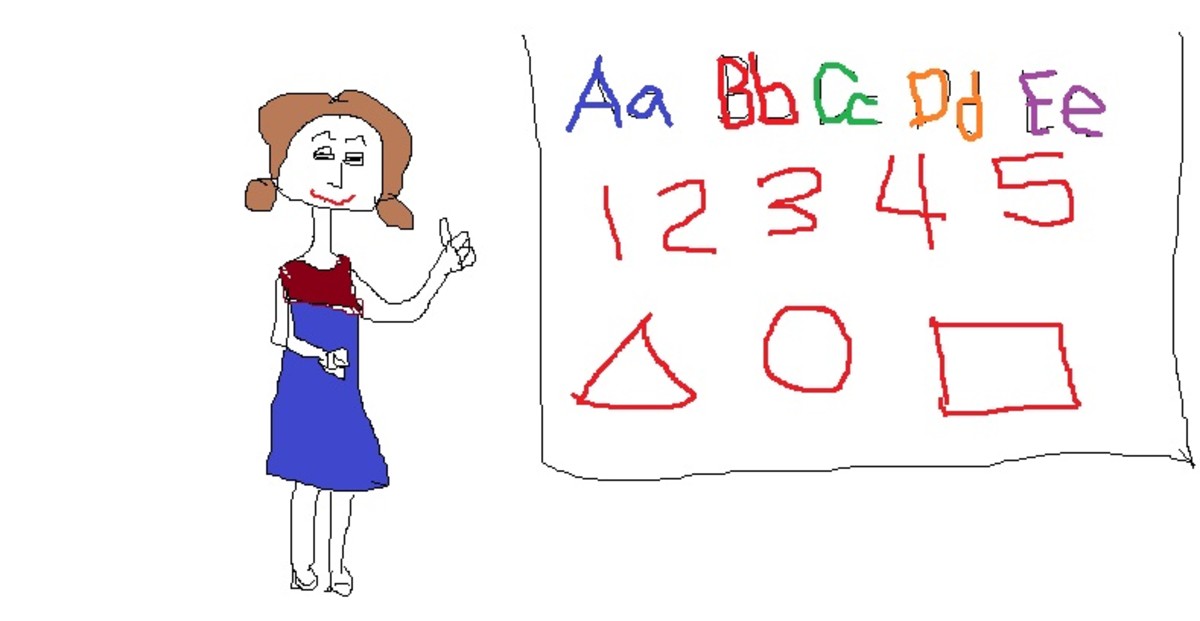How to Be a Freelance Worker
Biz Picture

A Telecommuting Journey
I wasn't always a freelancer. Once upon a time I was a teacher, and before that I was a traffic officer. So how did I become a freelancer? In one word- disability. I became disabled in a way that prevented me from keeping a regular job and driving (most of the time). Since I am in my early 40's with two small kids to help support (my husband works too), I couldn't just quit working altogether. For those who know, Social Security Disability doesn't really pay for much more than subsistence- a few groceries, medical bills and little else.
At first I was in a panic. Our family tried to live on my disability income and my husband's income, but it just didn't cut it. I had to look around and see what I could do while working from home. I did have a few skills to begin with- I could type, had a basic knowledge of HTML as well as a few other skills such as ability to use several word processing programs, Excel and PowerPoint. As many people say, at least that is a starting point.
HUMBLE BEGINNINGS
Initially all I had was an old computer and a dial-up connection. This was as basic a set up as you could get. I started surfing the Internet to see what was out there by checking out the job lists for freelancers. I also combed the writer's forums to find out what other writers had to say about different clients, took notice of black lists of non-paying clients and started looking for jobs.
WHERE TO START
I'll be honest- when I first started freelance writing 4 years ago I took any job I could find. I wrote articles for $2 and $5 and a few in between. I knew that if I just worked at it, I could cultivate a few higher paying clients, especially if I added to my "clips" (examples of my work). Many writer's scoff at the idea of working for so little money, but I was starting from scratch with no connections in the writing world. I wanted something and I was willing to work for it.
SET GOALS
It is important to set goals for yourself. I did so, right from the beginning. I thought that if I worked at what I was doing (at the time SEO/Keyword article writing) I could eventually make more money. My goal was to double my income within 6 months. To me, this meant going from $2 articles to $4 articles. This may not seem much, but it was a reachable goal. If you want to be a freelancer, you have to know what you are capable of, and decide how you will reach those goals. For me, I could have written so-so articles for $2, or write better articles and get paid $4. In my mind I knew that if I improved the quality of my writing I could earn more money and work less. I'm sure, if you're reading this, you do too! Which brings me to my next point....
QUALITY NOT QUANTITY
Have you ever heard the term, "work smarter, not harder?" This is especially true in the freelance business. Whether you are a writer, editor, researcher, photographer or web designer, your time is worth a lot. You want to get the most bang for your buck, and your clients do too. This is why it is important to do your absolute best. This also means that right from the start you have to check then double check everything you give to your client. Don't give them things that have to be corrected- it is your job to make sure it is ready to go when you turn it over to the client. For writers, this is especially true- if you don't know how to use Microsoft Word and run a spell-check, learn before you begin that first job!
GET EVERYTHING IN WRITING
Speaking of landing that first job, it is important to know what to do when you're searching and considering a job. Clients will often state their terms in job listings, but you have to watch out for your own interests- no one is going to do this for you. This means simply, don't let people walk all over you. In today's freelance market, there are plenty of people who want the jobs, but you need to be Internet business savvy in order to survive. Don't just take any job without getting everything in writing. Your survival, and your wallet, depend on it!
Contract Tips:
- Know what the deadline is
- Understand exactly what the client wants down to the last detail (i.e. a keyword article consisting of 5 keywords, their placement, and the total number of words required in the article)
- Payment terms - don't work on spec unless you have a personal relationship with a client (spec means no payment, or a barter of some type) and the exact amount of payment and when it will be delivered
SET YOUR OWN TERMS
Many clients will ask you what your terms are, which is nice since it puts the ball in your court. Typical terms are usually payment in full upon delivery or half at the beginning of the project and half upon completion. In my opinion, the dollar amount of the project determines what terms I state. For something under $100 I usually accept payment upon completion. Anything larger, the client should make a good faith down payment.
Another option is to have the client place the payment in escrow- that means they have to hand the money over to a neutral 3rd party who will hand the money over to you when the job is completed to everyone's satisfaction. This protects you from client's who want freebies. Some online freelance networks, such as Elance, provide an escrow option to protect both parties.
MEET YOUR DEADLINES
Nothing can kill a freelance career faster than missing deadlines. Being a freelancer implies that you are organized and can handle a home business. Treat all of your clients alike- meet agreed upon deadlines and beat them ahead of time if possible. This will help you create a great client list and give you references, which you'll need from time to time, so you can land that next big job!
If for some reason you're going to miss a deadline, tell your client as soon as you know this is going to happen. No one wants to be left hanging, especially if the client has an important meeting and they're counting on that PowerPoint presentation you've been working on for a month. A client is more likely to forgive you if you are honest and upfront about any potential problems.
Which brings me to my next point....
LET YOUR CLIENT KNOW IF SOMETHING GOES WRONG
If you start a project and it just doesn't seem to make sense, or you just aren't clear about something, get a hold of your client right away. Don't work blindly for a week on something and run the risk of doing it wrong. When in doubt, contact the client immediately for clarification. Don't waste your time, or your clients'.
MY STORY- THE SAGA CONTINUES...
I can honestly say that I love what I do. I'm a freelance writer, editor, blogger and web designer. I'm planning on branching off on voice overs and podcasts next. I also am working on my BlogTalkRadio show (and you can too- it's easy!). I'm making pretty good money working on a few projects and I usually pull in around $2,000 a month, depending on how much work I want to do.
I'll include more of this information in my next hubs- stay tuned!







